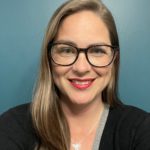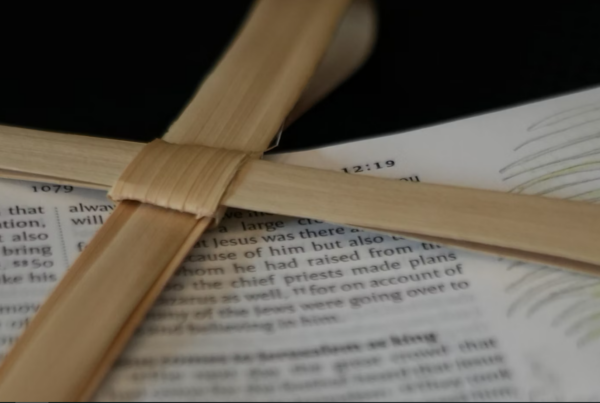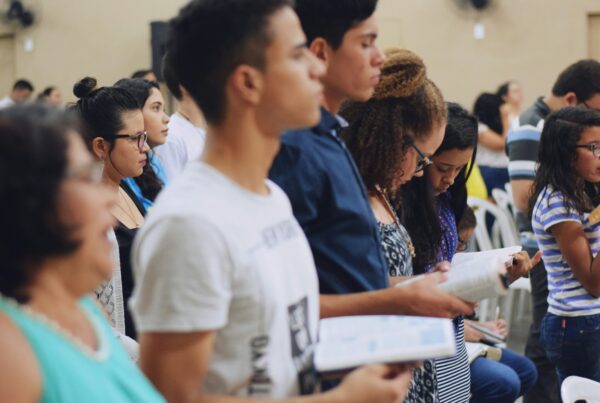A s part of my role at Christian Horizons I often speak to church groups about disability, accessibility, and ableism. In my presentations I usually tell a story about the church I attended (pre-pandemic) where, although in a technically accessible building, I encountered many barriers.
Elevators and escalators were often broken. In the sanctuary I sat in the accessible back row, apart from my friends scattered throughout the congregation. When everyone stood to sing, from my seated position I could not see the band or read the lyrics on screen. I couldn’t pick my child up from her Sunday school class because of stairs. Altogether it meant that I felt very disabled and segregated when attending church.
How my church became more accessible
Then the pandemic hit and everything moved online. Our church hosted multiple online ways to connect: Zoom calls, online teaching, podcasts, Instagram and Facebook communities, virtual camp, book clubs, park meetups, subscription boxes, and more. I could fully integrate into the life of our church community and it was wonderful.
During this time our pastor surveyed the congregation about what we hoped church would be like once we could meet in person again. How could we build back better in a post-COVID world?
The leadership team decided to find a new building and to make actual, functional, accessibility a requirement right from the beginning. We found a beautiful mid-century church that was looking for another congregation to share its space. We finally started meeting in person together in the autumn of 2021.
This new space allows us to be the kind of church community we want to be. We can move the chairs to face one another. This means we can get creative and include kids more easily in the main worship service. The large yard will be great for picnics outside. We look forward to potluck dinners someday (once it’s safe to be unmasked indoors). Hopefully we can use the gardens outside to grow food for our community. The large kitchen is a great space to assemble lunches for a local youth shelter. We will be able to serve each other and our community better.
And this new space allows me to truly be part of the community, in person, again.
I have finally gotten to know the woman who has been teaching my daughter’s Sunday school class; for years she has been out of reach to me, beyond a flight of stairs. I’ve already signed up to volunteer on the welcome team because I can actually access all parts of the building. The stage is accessible which means I can help with land acknowledgements or announcements. I can sit near friends. I can bring my walker and be my full self even on my hard days. And on my really hard days I can still participate with the many online options they have kept going.
I’m so grateful for a pastor and a church community who was willing to work to ensure that every body belongs in the body of Christ.
Questions for churches to consider
Do you want to be part of an accessible and welcoming community? Here are some questions to consider:
- What kind of community do you want to be?
- What creative new ideas arose during the pandemic that can help make your community better?
- Was anyone missing that you can reach out to now?
- Did anyone join during the pandemic? How will you keep them engaged now?
- What efforts can we make so that each person feels like they belong?
Resources for church accessibility
- Everybody Belongs, Serving Together is an inclusive guide that has resources for inclusive church ministry with people with disabilities, including a church accessibility audit.
- Christian Horizons’ Church Engagement has stories of disability and the church, valuable resources for congregations, as well as a church newsletter.
- “Disability, Accessibility, and Vulnerable Populations” conversation with Jasmine Duckworth, Eric Versluis, and Chris Chase, available on Spotify, Apple Podcasts or Google Podcasts.
This article was originally published on The Faith and Disability Forum. Shared and adapted with permission.

Jasmine Duckworth
Jasmine Duckworth has been working with Christian Horizons since 2004, and has been disabled herself since 2015. When not working as a Community Development manager, she is a mum, wife, and obsessive knitter.



